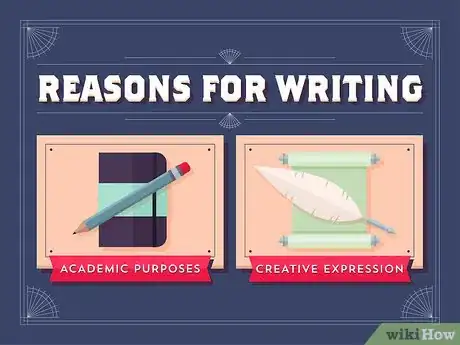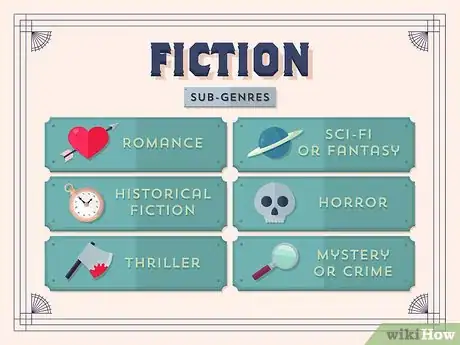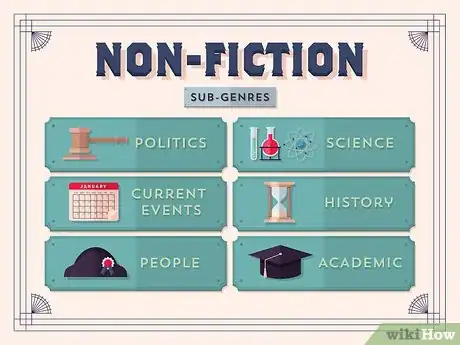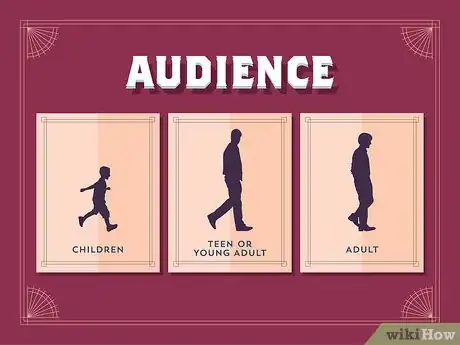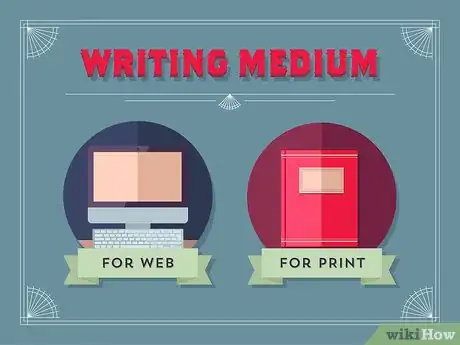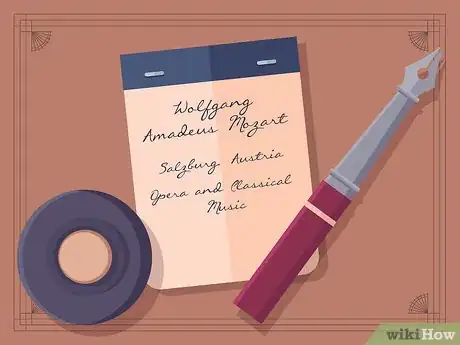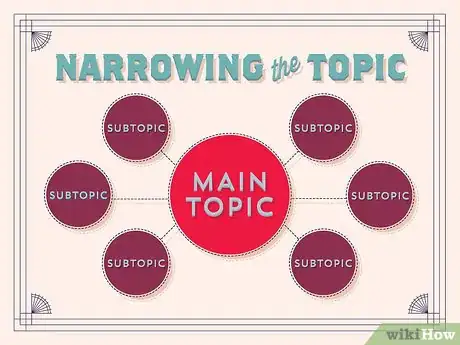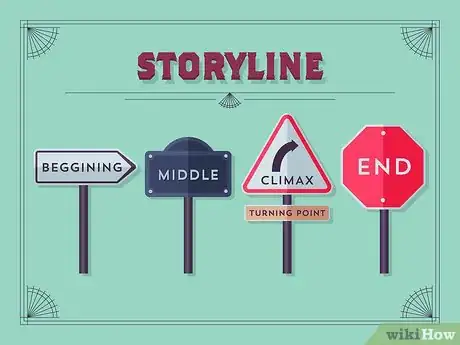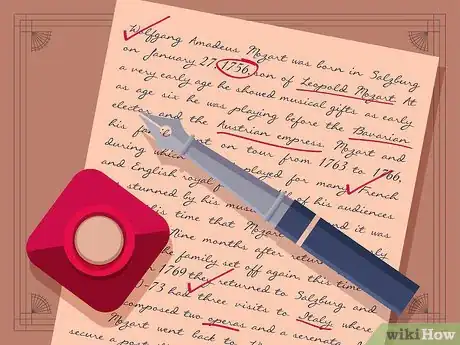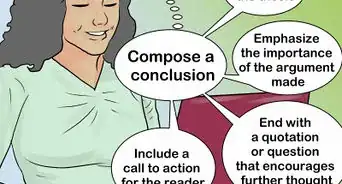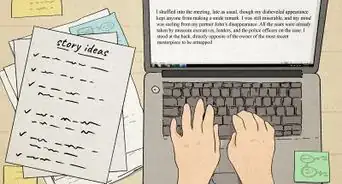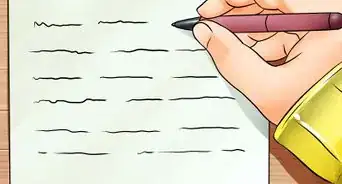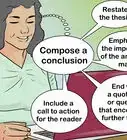This article was co-authored by Melessa Sargent. Melessa Sargent is the President of Scriptwriters Network, a non-profit organization that brings in entertainment professionals to teach the art and business of script writing for TV, features and new media. The Network serves its members by providing educational programming, developing access and opportunity through alliances with industry professionals, and furthering the cause and quality of writing in the entertainment industry. Under Melessa's leadership, SWN has won numbers awards including the Los Angeles Award from 2014 through 2021, and the Innovation & Excellence award in 2020.
There are 7 references cited in this article, which can be found at the bottom of the page.
This article has been viewed 66,839 times.
Writing is a fun and exciting process. Sometimes you must write essays for school or an exam and sometimes you can write for your own pleasure. When deciding to become an author, it makes sense to consider what you want to write about. If you’re interested in creating stories, fiction could be the right genre of you. Non-fiction, on the other hand, appeals to people who like to share facts or analyses of history, science, or current events. Whichever form of writing you choose, be sure that it matches your passion. Writing means revisions and lots of time spent with your work.
Steps
Choosing Your Type of Writing
-
1Identify your reason for writing. Do you need to write an essay topic for a class? Are you choosing to express your creativity through writing a short story? The reason why you want or need to write will determine the form and content of your writing. Knowing how much freedom you have in choosing your topic is also essential for planning.
-
2Decide whether to write fiction. Do you like the thought of writing stories? If so, consider writing fictional works.[1] This means that your stories are not fully true. Although there might be true parts in them like the setting, you make up your basic storyline. There are several sub-genres within fiction, including:
- Romance
- Science fiction and fantasy
- Historical fiction
- Horror
- Thriller
- Mystery/Crime
Advertisement -
3Consider writing non-fiction. If you prefer to discuss concrete facts, non-fiction is the genre for you. Within non-fiction you can focus on politics, science, current events, history, historical and contemporary people, and myriad other topics. You also can write theoretical works that discuss philosophy or social theories. Academic writing is normally non-fiction.
- Creative non-fiction is a sub-genre of fiction. It combines facts with literary prose so that you are tell a story in an engaging style while painting the scene. This contrasts nonfiction that primarily states information or argues ideas.[2]
-
4Pinpoint your audience. Do you prefer to write for children or young adults? Perhaps you would rather write literature for adults. Are you intending to pen a bestseller or share some thoughts with a smaller audience? Understanding for whom you plan to write will help you choose your eventual topic.[3]
- For example, teen audiences might prefer science fiction stories. That could be the right genre to use.
- If you are writing a speech, for example, whether you are addressing your fellow classmates, parents, or your community will impact the content and style of your writing.
-
5Decide on your medium. Where do you want your writing to go? Do you prefer to write novels or newspaper articles? You could become a popular blogger. You also could write poetry. Deciding in what form (print, digital, book, newspaper, article, email newsletter) you want your work to appear can also help you pinpoint a theme.
- Some mediums are better suited for certain types of writing. For example, if you want to write in a casual style about your daily life, a blog might be perfect for you. Writing a print novel about your vacation, on the other hand, would make less sense.
- For non-fiction writers, consider starting with newspaper articles or blog posts. Then, once you gain momentum and experience, move up towards having journal articles or books.
Picking a Topic
-
1Brainstorm ideas. Taking about twenty minutes, write down what themes interest you. Do you like to read about immigration to Ellis Island? Perhaps you are a huge Minnesota Vikings fan. Write down anything and everything that piques your interest. The key is to identify what subject will keep you motivated. Writing is a long process so it makes sense to invest your time in an area that excites you. Upon looking at your list, pick your top three favorite themes.[4]
- If writing an academic paper, keep in mind the requirements of your assignment. In that case, focus your brainstorming on matching the areas you must investigate. Even though a topic might seem boring, how can you investigate it from an interesting angle? For example, if you must write an essay for a music class on Mozart, is there something related to him you do find intriguing? Perhaps you are interested in Salzburg, the city of his birth. You could write an essay examining how Salzburg impacted his musical development.
- If you feel stuck on finding a good topic for a class assignment, talk to your teacher. He might be able to help you find a good theme. Ask your classmates as well for tips.
-
2Identify your personal expertise. Is there an area in which you are interested about which you already know? For example, are you interested in jewelry and already sell your products on sites like Etsy? If so, consider choosing this topic. Having prior knowledge on one of your favorite themes will expedite your writing process. It helps your confidence too if you already feel a bit like an expert.
-
3Research your top themes. Do a bit of background research on your favorite theme. For instance, if you decided you wanted to write about equestrian training, see what books already exist on the topic. If you wanted to write children’s literature and use animals as your main characters, look at popular sources like the Berenstain Bears or Peppa Pig. What topics are these authors covering? Is there a missing area in this market segment?
- Although it is smart to check your market, if you are writing solely for personal satisfaction, you can put less weight on this step. For example, if you are going to write children’s stories for your children using penguins, it matters most that you and your children like the final product.
-
4Narrow your topic. After doing your research, pick the topic that makes the best candidate for writing. After finding that topic, narrow your focus so you have one key idea. For example, instead of saying, “I’m going to write a story about penguins,” think, “I’m going to write an instructional tale about how two young penguins got lost on the way home from the market and used their thinking skills and cooperation to find their way to safety.” Consider making a mind map to help you think about possible, specific ideas.[5] For example:
- Draw one large circle with your topic, e.g. penguin fiction
- Draw lines to smaller circles with subtopics, e.g. family life, education, home, playtime, work activities
- Draw lines from your subtopics to new circles to keep narrowing your focus. For example, family life could lead to sibling relationships. Already, with this point, you have a much more specific focus: fiction about sibling relationships of penguins.
Trying Out Your Topic
-
1Frame your story or work. If writing fiction, begin to jot down potential story-lines and characters. If writing nonfiction, start finding facts from sources that will help your writing. Begin to see how your topic works as a writing theme. Use this moment to be creative and not worry about perfection or identifying the best way to explain something. Think big and broad.
-
2Create an initial outline or storyline. Map out where your piece is starting. Describe where it is going and how it will get there. Think of your points as road signs that keep your story moving.[6]
- If writing a fictional story, craft a storyline with a beginning, middle, climax (turning point), and end. For example, if writing the penguin sibling story, chart out their journey to the market and their journey back home. When do they get lost? When do they access help? What is the turning point?
- If writing nonfiction, create a structured outline that proves your point. Also, include an introduction, thesis statement (what you are proving and why), body paragraphs or sections, and a conclusion.
-
3Start writing. After you have a finished outline, it is best to start writing. Understand that it might take a while to get in “the groove.” This is normal. Relax and continue writing. You always can revise later. The key is to have something on the page to revise.
-
4Review. After you have completed your initial writing, read what you have written. How is your topic working? Are you able to write naturally about, for example, penguin sibling relationships? If not, what could you change? Maybe your characters need more refinement. Perhaps, you need to switch the setting. Oftentimes, small changes can make your writing feel better. If writing non-fiction, do your paragraphs lead logically to one another? How is your flow? Check to see if you are proving your thesis or main argument.[7]
Expert Interview
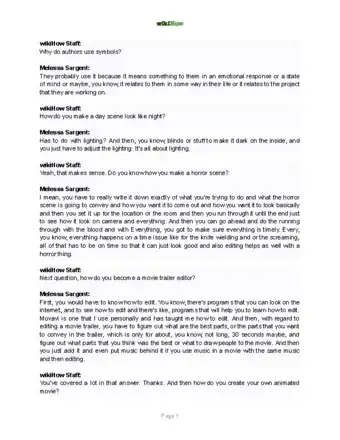
Thanks for reading our article! If you'd like to learn more about tips to be an author, check out our in-depth interview with Melessa Sargent.
References
- ↑ https://owl.purdue.edu/owl/subject_specific_writing/creative_writing/fiction_writing_basics/index.html
- ↑ https://owl.purdue.edu/owl/subject_specific_writing/creative_writing/creative_nonfiction/index.html
- ↑ https://writingcenter.unc.edu/tips-and-tools/audience/
- ↑ https://writingcenter.unc.edu/tips-and-tools/brainstorming/
- ↑ https://owl.purdue.edu/owl/general_writing/common_writing_assignments/research_papers/choosing_a_topic.html
- ↑ https://www.grammarly.com/blog/story-plot/
- ↑ https://writingcenter.unc.edu/tips-and-tools/revising-drafts/
